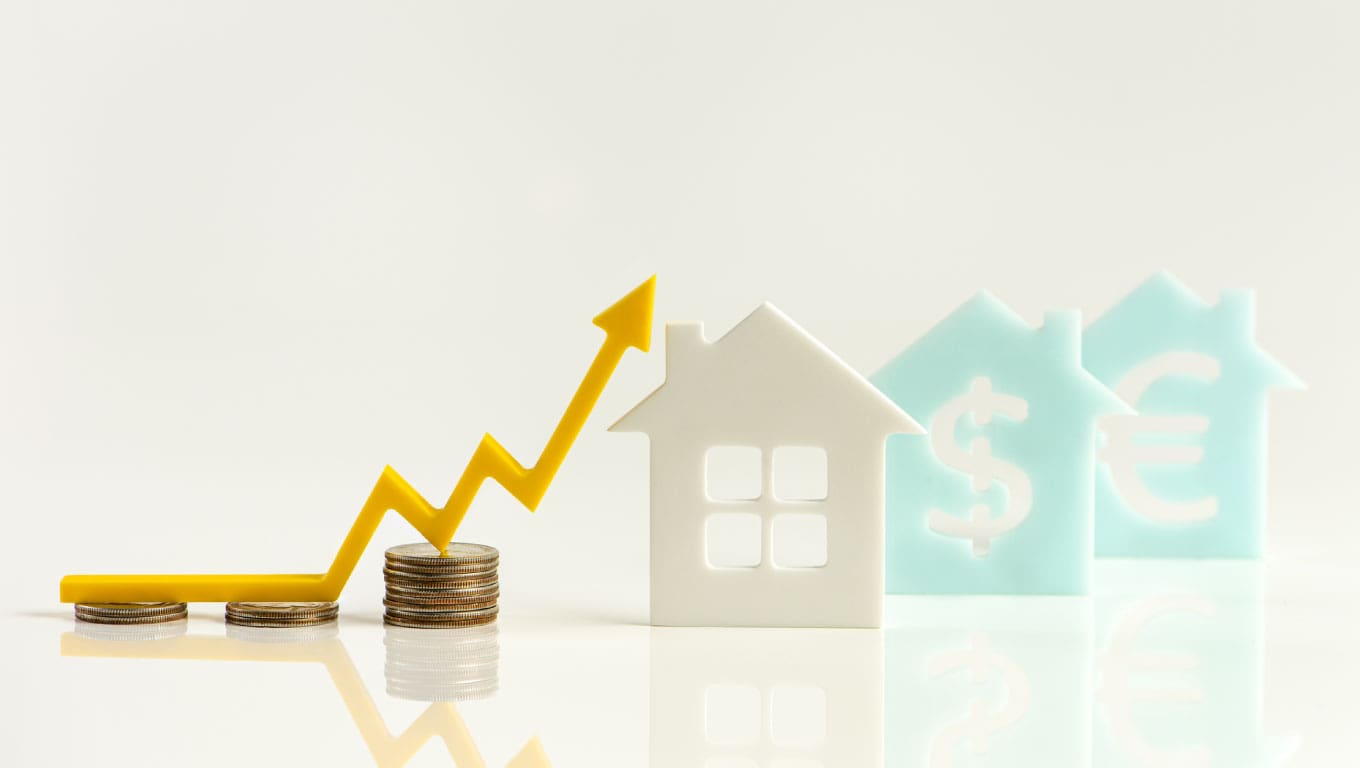Leggi questo articolo in Italiano

Real estate market: what you need to know
By Gabriele Brambilla
Dynamic and huge, the real estate market is also a major player in the investment world. Let's better understand what it is and how to invest

Introduction to the real estate market
The real estate market is where brick supply and demand meet. In life, just about everyone will have to deal with it at least once, whether it is to buy or sell property, or even just to rent a house or apartment.
The brick market has existed for a long time and fulfills one of the indispensable needs of human beings: to have the security of a roof over one’s head. However, as we will see, this is only one of the reasons why people approach this sector; in fact, there are also a great number of people who focus exclusively on real estate investments, that is, operating in brick to achieve a profit, just as we could do on stocks, bonds, cryptocurrencies or other assets.
So let’s discover all the nuances of the real estate market and understand why so many have decided to invest in real estate.
Index
Direct real estate investment
Let us begin with investment in the direct real estate market. In this context, an entity (either an individual or a company) decides to invest in real estate by buying one or more properties, with the aim of generating a profit. The term “property” can include apartments, entire buildings, commercial or industrial complexes, land, garages, and so on.
The idea behind this operation is to invest in order to earn, period. The entity may also decide to take advantage of the purchase for a time, but never lose focus from the real motivation behind it. For example, a person may invest in real estate by buying a house, perhaps living there for a short time. However, it certainly will not stay there for life, otherwise we could not talk about investment.
There are different ways to make money, including:
- Resale at a higher price than purchase. All rather simple to understand: you buy the property and aim to resell it in the near future at a higher price. Finding the right opportunity in these cases matters, and the price must be lower than the market price. The capital gain, subtracted of expenses and taxes, represents the net gain.
- Rent or lease. Here you do not resell the property, but lease it to someone who will pay a rent. In this way you can get back into the investment after a number of years, even many, but you retain possession of the property.
- Resale after improvements. Similar to the first point, but with one major difference: in this case you buy the property, improve it, and only then sell it. It is then the work done that will generate the capital gain. An example: buy a ruin, renovate it, and resell it (of course, all expenses must be less than the amount collected at the end).
The methods just described can be applied in a variety of property types and contexts. Thus, we can buy a piece of land and resell it years later to a company that wants to build a shopping mall, or buy a house in Rome to rent to tourists. Regardless of the method, the ultimate goal will always be some form of gain.
Housing market issues
Investing in this area is not easy and has some problems.
The first lies in the initial capital. Barring golden opportunities, assuming the purchase of an apartment outside a major Italian city, at least 100,000 euros will be needed to get started. Therefore, a respectable amount of money is needed to start the investment journey, as well as some patience.
The second problem is related to contingencies. Becoming an owner also comes with responsibilities. For example, we may have to take action on a breakdown, or find ourselves dealing with a headache we were unaware existed. Not to mention possible insolvencies on the part of tenants.
To these first two points we must add a third: costs. Owning a property can entail expenses and taxes that will also greatly impact the final gain. We will therefore need to be aware of these items before we venture to invest in real estate.
We must then also point out that the real estate market is not as immediate as others. We may have to wait some time before we are able to close the trade, thus missing out on other opportunities or simply pausing.
Finally, even in real estate investing we will be dealing with market conditions. Real estate prices can fluctuate over time, and general economic conditions have a strong impact on the sector.
In times of great prosperity, investing in real estate brings great satisfaction and we can move fairly quickly. But if we find ourselves in the midst of a black moment, we may even run into painful losses.
To obviate or limit these problems, it is possible to invest indirectly in the sector. Let’s delve deeper.

Indirect real estate investment
The alternative way is to invest in the real estate market indirectly, through instruments such as ETFs and funds, or by financing companies operating in the sector with small amounts. For example, one can participate in Real Estate crowdfunding initiatives, where varying numbers of people join forces and finance even major projects.
These products are an opportunity as they have no barriers to entry, or minimal requirements. In addition, the issues we mentioned earlier (repairs, contingencies of various kinds) come out of the picture. However, there still remains the risk of failing to generate the hoped-for gain, as well as the risk of cashing in a loss. After all, these are investments, and there can be no shortage of dangers.
How much do you make in the housing market?
It all depends on the period and, of course, on making the right move. The gains can also be high, because real estate concretely offers this possibility. However, we cannot have starting figures and certainties.
Some Italian cities host rather complex markets, in some cases from a real estate bubble. One case is the Milan real estate market, which is much talked about and prices are absolutely skyrocketing, somewhat like what happens in the world’s metropolises and megacities. Being able to operate in these contexts is difficult, risky but, at the same time, potentially very profitable.
The small saver entering the real estate scene for the first time should perhaps opt for more predictable and quiet marketplaces, so that he or she can gain the experience and capital necessary to take the next step.
"Entering the industry requires experience, capital and a willingness to take risks"
Is the real estate market going to crash?
Historically, there are periods when for various factors the housing market can collapse.
While it is impossible to predict exactly if and when a crash may occur, we can tell if the trend is going in that direction.
Thanks to statistical data published periodically, we can assess the health of the housing market on both new and existing construction.
In the United States we need to keep an eye on the New Home Sales and Existing Home Sales data, which are updated monthly and are able to show where the market is going. Similar indicators are also available in other countries and free to consult.